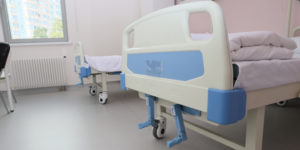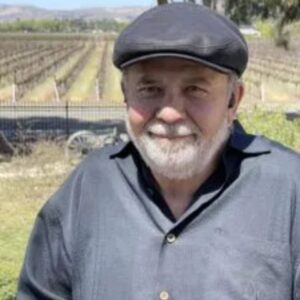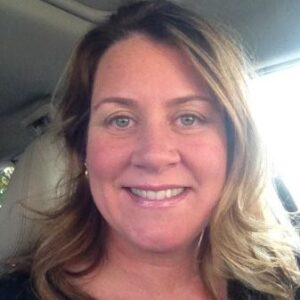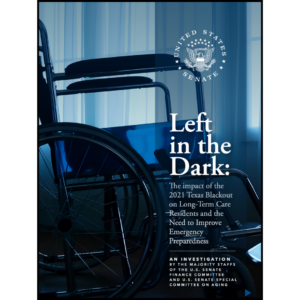Plan for a tornado emergency
Tornadoes are one of nature’s most violent storms. Every year about 1,000 tornadoes are reported across the United States, resulting in an average of 80 fatalities and more than 1,500 injuries. Damage paths can be wide and lay waste to entire neighborhoods and towns.
Inverness Village, a continuing care retirement community in Tulsa, Okla., is located in the middle of “Tornado Alley.” The highest months of recorded twister touchdowns occur in the spring. In March, we are already practicing tornado drills, ensuring both residents and staff understand and follow procedure.
Long-term care providers should not wait to ensure that preparations and procedures are in place to keep the residents they serve—and their valued employees—safe. Is your facility ready to weather the storm? Start by asking the following four questions:
What communication system do we have in place?
Reliability is key. In our main building, an intercom system allows us to inform assisted and independent living apartments, along with skilled nursing residents and staff, to be aware of a tornado watch or warning. However, that does not mean all employees and residents on our campus are aware of the threat.
We recently instituted a one-call system to reach residents and staff outside the main building. This system allows us to record a message and reach all additional residents and staff by phone within less than one minute. If the resident or employee does not answer the phone, the system continues to reach out until the individual receives the safety warning.
It is important to update all residents and staff of the procedures in place. Send e-mails and newsletters that give a detailed explanation of the difference between a tornado watch and a tornado warning, as well as what to do when either emergency occurs. Practice an evacuation drill involving all residents and employees at least once a year. Hold a Q&A to make sure the community understands what to do in an emergency and to offer reassurance to all.
If an evacuation has taken place, perform a roll-call to make sure everyone is together and safe, and that no one has been injured. This involves calling all residents in their homes that are not in the main building. We have emergency lists of all residents and phone numbers that can be grabbed on the go in case of an evacuation.
Are we prepared to assist all residents with health needs?
One of the most pressing concerns we have when the threat of bad weather surfaces is making sure our residents’ health needs are met, particularly when individual prescriptions and medications are involved. Asbury Communities, Inc., operates a pharmacy on each of its five campuses. These pharmacies strictly maintain proper inventories of all medications either prescribed to those who live at our community or that we know are frequently used. This allows us to keep track of what is available and what is needed. We are responsible for ensuring the pharmacy is fully supplied with those medications; however, in the case of severe weather, we have an agreement with the local community pharmacy to retrieve backup medications and supplies.
When a tornado warning is announced, residents in independent and assisted living units are asked to carry an “emergency kit” consisting of a blanket and pillow, flashlight, medications, portable battery-operated radio and other necessities to a secure location. Nursing staff ensure that those in skilled nursing have what they need. In fact, when a tornado watch is issued, these associates begin immediate safety preparations by removing glass and breakable items from surfaces, closing privacy drapes around residents in bed and in case of a tornado warning,locating medicines, health charts, blankets and flashlights.
While mobile residents may be able to move independently to the safest gathering place—be that a bathroom on the first floor of a building or the basement of a parking garage—nursing staff must be ready to help others to shelter and remain with them until the emergency has ended. Because of our location in Oklahoma, Inverness Village has two secure locations within our building: one for independent living and assisted living residents, and one for those in skilled nursing. These large rooms have walls of reinforced concrete and steel doors with multiple locks for added safety. In the houses on campus, residents will find a large, steel safe room in the master bedroom closet.
Senior living communities need to consider the amount of time it takes to transfer residents from apartments, homes and rooms into a safe, secure area. Because some residents may need additional help, even personnel who are not directly involved in the daily care of residents must pitch in to get residents to shelter. Give yourself a time cushion that will ensure all residents are safe.
What will happen if we lose power?
When the electricity goes out, residents and staff are at risk. Without light, there is a greater likelihood of falls. According to the CDC, falls are the leading cause of both fatal and nonfatal injuries in older adults. It is important for residents’ safety to keep the power on, but it is a challenge to run all lights, equipment and other devices at 100 percent. Rather, we identify the most critical utilities for Inverness Village residents and supply the power to run them through a backup emergency generator in the main building.
For example, we ensure that all bathrooms in the community are supplied with light to prevent potential resident falls, especially at night. Our kitchens and dining areas will also have power. Our generator ensures that every fourth light in our main buildings can be turned on. The guardhouse, which keeps watch on the weather during storms, is fully supplied with power so they are able to alert residents if safety is an issue.
What if we need Plan B?
Thoughtful, strategic and executable plans are extremely important to keep residents safe amidst a disaster. It is equally important to make secondary plans, which should involve other organizations you trust and consider a partner within your community. Plan B is always necessary. The Asbury system collaborates with the local communities where our campuses are located to provide an additional safety net in case of an emergency. We work with local EMTs and fire departments to practice our safety drills each year, and they provide objective, helpful feedback that we take into account when adjusting our plans.
The local American Red Cross organization is available to provide us with volunteers in the case of an evacuation. They become an extension of our staff during times when the number of residents who need physical support to leave the building outpace the number of employees on campus. The local pharmacies are on call if our own community pharmacies do not have the necessary medications and supplies for our residents. We also work with the hospital and assure our residents that if a health-related event were to occur, they will be taken care of quickly and efficiently. We have an understanding with the local community that what matters most is working together to provide support to the people for whom we care.
Summary
When weather conditions endanger our communities, nothing is more important than keeping our residents and staff safe from harm. That’s why everyone—from employees to the residents themselves—should understand what will happen under these circumstances. Borrow good ideas from others to put into practice. Our residents deserve to have confidence in knowing we will meet their needs, whether those are medical, nutritional, or even activities of daily living. With a solid plan that includes even minute details, we can communicate the processes and procedures that allow our communities to place their trust in us.
 Mark Gray is the Executive Director of Inverness Village. He has been involved in healthcare administration as a thought leader and provider for more than 30 years. He has served in state leadership roles for AHCA and LeadingAge in Texas, Kentucky and Oklahoma.
Mark Gray is the Executive Director of Inverness Village. He has been involved in healthcare administration as a thought leader and provider for more than 30 years. He has served in state leadership roles for AHCA and LeadingAge in Texas, Kentucky and Oklahoma.
 Ruben Bearer is the Director of Facilities at Inverness Village, where he oversees Housekeeping & Maintenance for the entire community. He also coordinates landscaping services and strives hard to create a beautiful and clean campus for all residents and guests.
Ruben Bearer is the Director of Facilities at Inverness Village, where he oversees Housekeeping & Maintenance for the entire community. He also coordinates landscaping services and strives hard to create a beautiful and clean campus for all residents and guests.
I Advance Senior Care is the industry-leading source for practical, in-depth, business-building, and resident care information for owners, executives, administrators, and directors of nursing at assisted living communities, skilled nursing facilities, post-acute facilities, and continuing care retirement communities. The I Advance Senior Care editorial team and industry experts provide market analysis, strategic direction, policy commentary, clinical best-practices, business management, and technology breakthroughs.
I Advance Senior Care is part of the Institute for the Advancement of Senior Care and published by Plain-English Health Care.
Related Articles
Topics: Articles , Disaster Preparedness , Leadership , Regulatory Compliance , Risk Management











